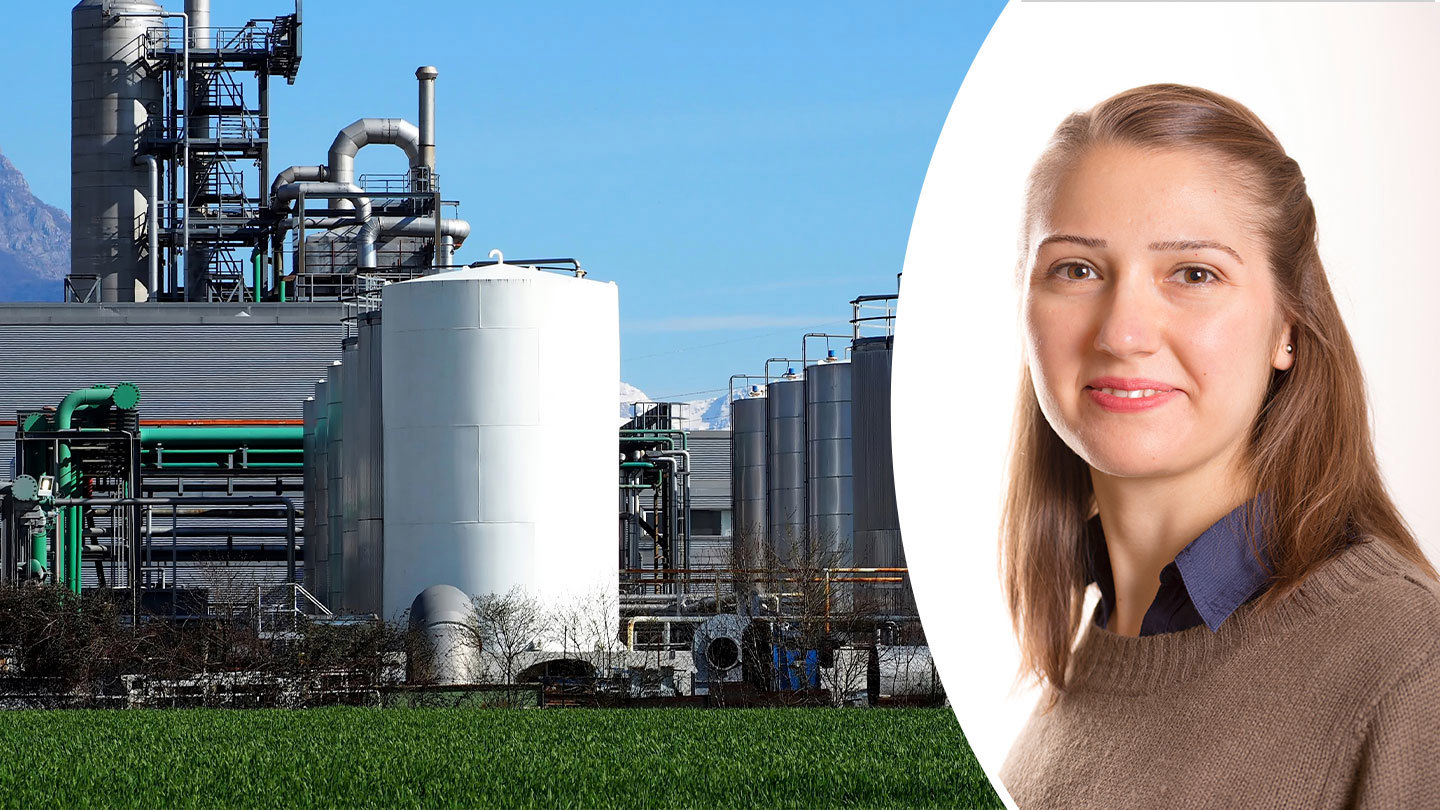Fungi a promising step for process industries towards a circular economy
2022-12-14

By investing in methods and processes to make use of the residual products that arise during, for example, the production of bioethanol, it is possible to produce both energy and protein-rich foods and feed, while reducing the burden on the environment.
In her doctoral thesis, Gülru Bulkan, newly awarded a doctorate in Resource Recovery, explains how this can be done.
“Conventional bioethanol industries can improve their process economy by constructing fungi-based biorefineries,” she said.
Analysis of data of different research projects
In her doctoral research project, Gülru Bulkan analysed large amounts of data from several different research projects carried out at the University of Borås within the research area Resource Recovery.
In these projects, researchers have worked on developing solutions for processes for industry to succeed as much as possible economically while at the same time being as environmentally friendly as possible, including making use of residues that arise during the production of bioethanol and in the food industry.
Performed techno-economic analyses
These investigations in a lab environment show promising results.
“Based on these research results, I have performed simulations and techno-economic analyses to see what happens when you scale up the processes to industrial level,” said Gülru Bulkan.
Overview for a step towards realisation on a large scale
Through the simulations, it is possible to get an overview to see if the new processes can be applied in industry. This also brings the results for the various processes developed within the research projects one step closer to being realised.
Gülru Bulkan has also looked at different kinds of filamentous fungi that are suitable candidates for a fungi-based refinery and how they are affected by various substances found in the waste products on which the fungi are grown, substances that either stop the fermentation or give extra boost to the process. The focus was on fruit waste and material rich in lignocellulose.
Promising pretreatment method
The challenge of lignocellulose valorisation is the complex structure of the material that requires pretreatment processes that are energy and cost intensive.
“Organosolv pretreatment is a promising method by which high-purity cellulose, hemicellulose, and lignin are provided for further valorisation. However, solvent cost and the need for solvent recovery are challenging,” Gülru Bulkan explained.
One of the novelties of this study is that the integration of organosolv pretreatment of lignocellulose into fungi-based biorefinery can overcome these challenges by providing solvent and recovering it within the already existing traditional ethanol plant.
Even by adding material containing a lot of lignocellulose and pre-treating it in a fungi-based biorefinery can be profitable. Moreover, it is critical to reduce the consumption of water and solvents to improve the economy.
“We get the very best economic and environmental yield by growing the fungi on residual products from the industry and making new foods or feed from the fungi,” she concluded.
Read more
Gülru Bulkan defended her thesis on 18 November at the University of Borås.
Title of the thesis: Fungi-Based Biorefinery: Valorization of industrial residuals and techno-economic evaluation
Research area: Resource Recovery
Supervisor: Professor Mohammad Taherzadeh
Solveig Klug
Portrait: University of Borås/Background: Adobestock

